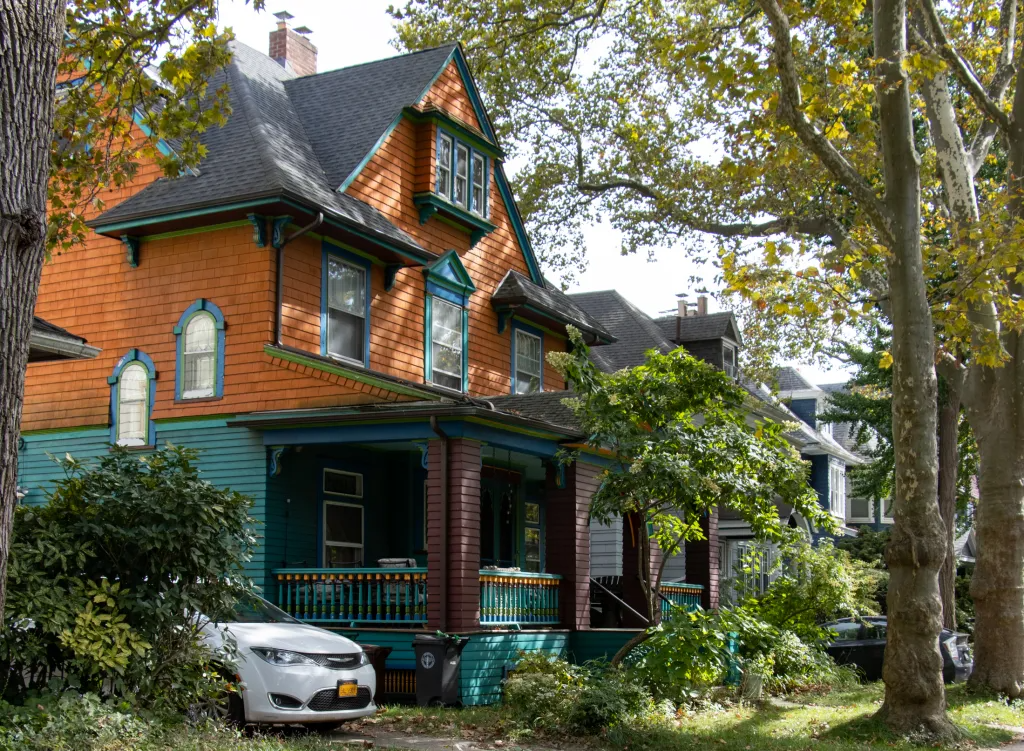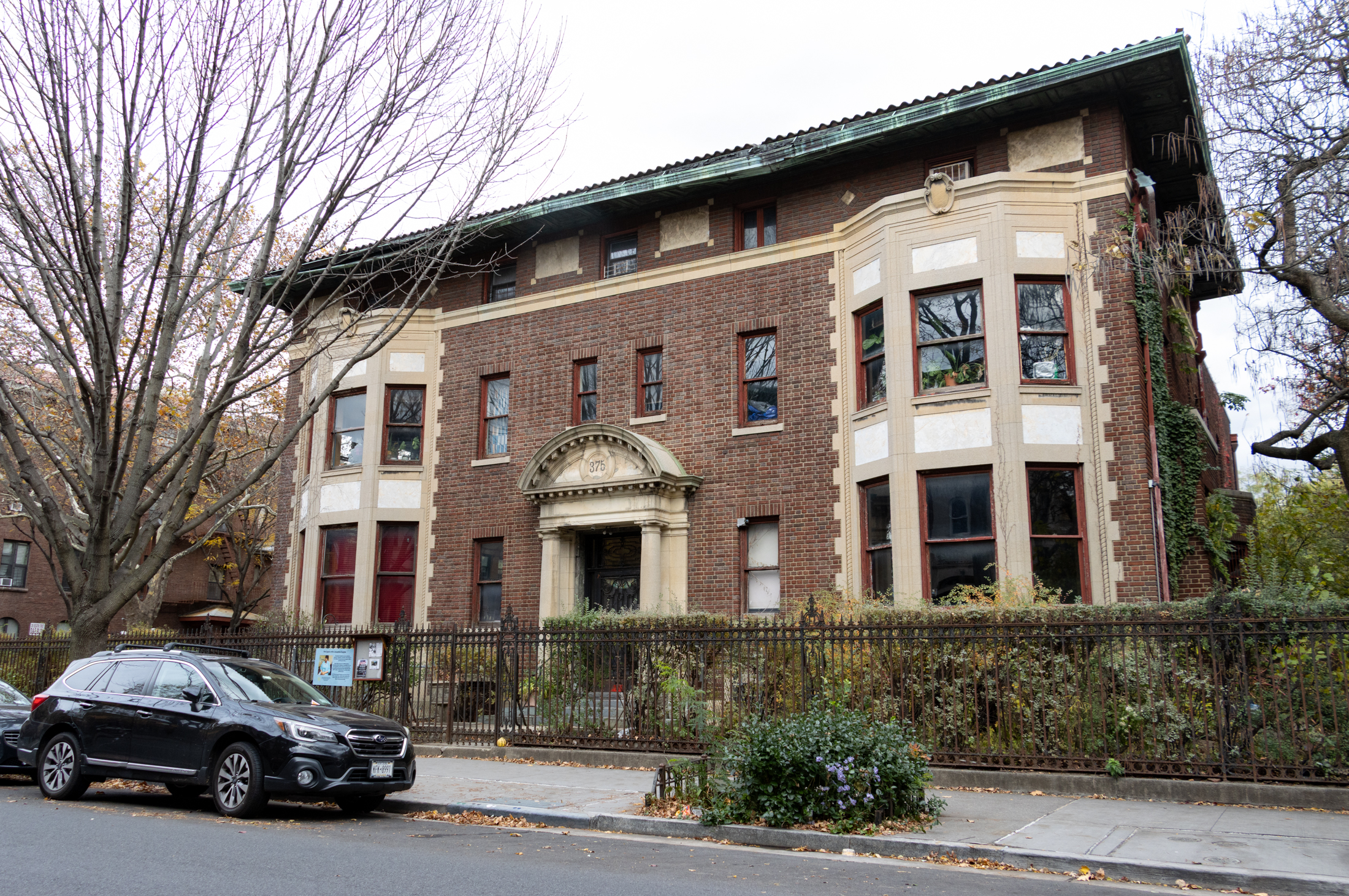City To Get Tough On Negligent Landlords
While we’re not so sure about its constitutionality, a new bill to be proposed by the Bloomberg administration would give the city more power to take proactive measures to fix up derelict buildings whose landlords who fail conform to certain safety standards. Under the plan, HPD could go into a building with a minimum of…


While we’re not so sure about its constitutionality, a new bill to be proposed by the Bloomberg administration would give the city more power to take proactive measures to fix up derelict buildings whose landlords who fail conform to certain safety standards. Under the plan, HPD could go into a building with a minimum of 27 uncorrected code violations and redo everything from roofs to entire electrical systems and then stick the negligent landlords with the bill; if the owner didn’t pay up, the city would put a lien on the building. The goal is to restore the ailing portion of the housing stock at a time when demand for housing in the city has never been stronger; the goal is 200 buildings a year for five years. Sounds like a good move to us, though if they really wanted to fix the problem they’d get rid of all rent controls.
City to Seek Broader Power Over Buildings [NY Times]
Photo by humain





gman @ 9:27 and syliva @ 9:29, I completely agree!!
anonymous @ 9:40 and anon @ 9:51.
From the 2005 (most recent) Housing and Vacancy Survey, median 2004 income for rent controlled tenants was $22,200 and for rent stabilized tenants was $32,000. Painfully low, don’t you think? Also, check out the median gross rent/income ratios – in 2005, the typical RC tenant paid 33.5% of their income in rent, typical RS tenant paid 31.9%, and typical non-regulated also paid 31.9% of income in rent. looks like, for the most part, things sort of shake themselves out and the typical regulated tenant is not the legendary money making machine paying pennies in rent.
It is true that sale price is related to income – NET INCOME.
Operating expenses and capital improvements are deducted from the gross income received from rent stabilized tenants.
Rent ceilings directly affect building maintenance because the state does not control the price of building materials or labor. In so many rent-stabilized buildings, many tenants barely pay enough to cover their share of real estate taxes and fuel consumption. How is a landlord supposed to fix up the building too?
And of course there is the obvious. Rent ceilings, along with restrictive zoning, have created the housing crisis that currently affects New Yorkers. In many ways, landlords prefer this. They do not have to compete with each other by building beautiful buildings. People will live ANYWHERE when housing costs a fortune and it is hard to find an apartment.
Also, Ace, the real issue here with “just move” is probably 500,000 households that are rent stabilized are filled with people on public assistance who live here out of default.
They have no reason to live in NYC, and they would probably be happier living in a trailer park somewhere in Florida.
If you aren’t in NYC to work here and make the city better, just go elsewhere. They moved from their hellhole homelands to come to this city, they can sure as hell move BACK.
It is traumatic, but so what. It’s traumatic for the rest of the citizenry to have to pay a fortune for housing and work several weeks a year to pay taxes just to support them.
Rent Control and Rent Stabilization are indirect taxes on working New Yorkers. Instead of paying more taxes to give handouts to these select few, you pay higher prices for real estate.
Wake up people!
Those willing to dispose of rent controle/stab should also be willing to abolish interest deductions from their mortgages and/or allow renters to deduct a portion of their rent.
And Mr B, there is a voucher system, it’s called Section 8. It helps landlords identify which tenants are low-income, so they can refuse to rent to them in “decent” neighborhoods.
Yeah, business school – great unbiased group there. Focus is how to help those with capital to get more and f–k those without.
What they alway forget in these ‘studies’ on RC in NYC is you are free to build anything you want and not be subject any controls.
Don’t worry, I’m sure Aunt Mildred the tax attorney on Gramercy Park won’t mind when the landlord slates the building for demolition, gets a demo permit, evicts her and all the other rent stabilized tenants, and then has a miraculous change of heart and decides to convert the whole building into luxury condos. I’m sure she’ll just buy one of the new condos and move back in.
But what about the other tenants who aren’t coporate tax attorneys, who just work at the dry cleaners down the street? I guess they’ll just have to move to Trenton and commute into town. Whiney, dispensable renters. Serves them right. Who needs dry cleaners anyhow.
There is a difference between rent control and rent stabilization, as only about 50,000 rent controlled units exist vs. more than one million stabilized units, and rent control has a different set of regulations than rent stabilization. -This is from housingnyc’s website.
What gets me is the “just move” argument. Moving costs hundreds and probably over a thousand dollars in this city. It can also be a traumatic event.
Anon @ 10:26,
In wanting to impose a new law, the duty is incumbent upon the supporters of such efforts to produce the studies and evidence that regulatory controls improve the housing stock greater than it would be without the regulatory controls.
In my opinion, empirical studies can only show a correlation of data, not truths that only logic can prove.
Don’t have anything at our fingertips, but we wrote a term paper about it in business school with plenty of back-up so we know there are plenty of studies and examples out there (believe there was a town in California that removed rent control with very positive results). Regardless of whether they should go into these things with their eyes open and that the properties should be priced to reflect the lower rents, the fact is that once they own the building, not being able to charge a market rent is a discincentive to investing in improvements. Not happy about it or trying to defend these lowlifes, but there is a logic to it that you’d think public policy people would grasp. That’s why we think rent control should be replaced entirely by a voucher system. Let rents be market rate and the government decide which members of society should be subsidized, rather than landing a rent-control apartment being akin to winning the lottery. This would result in a much more efficient distribution of our housing resources.